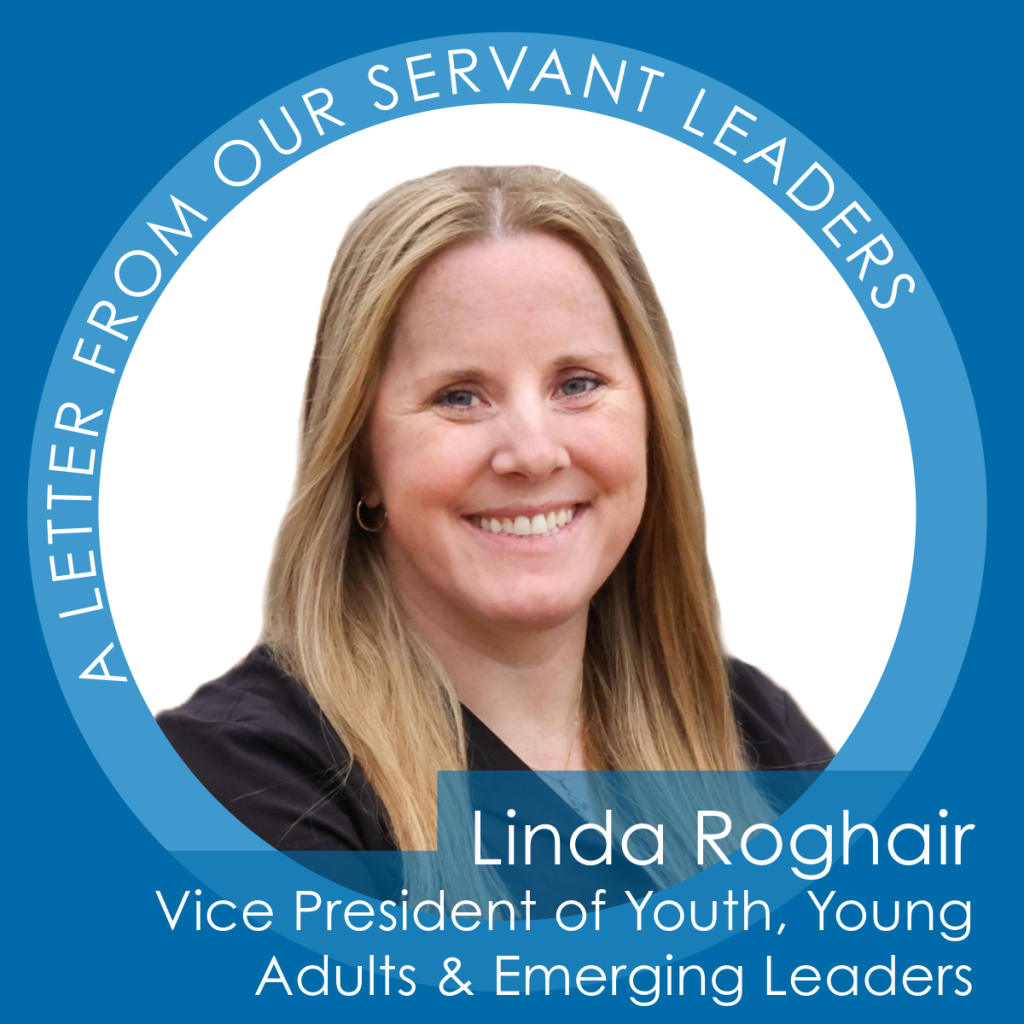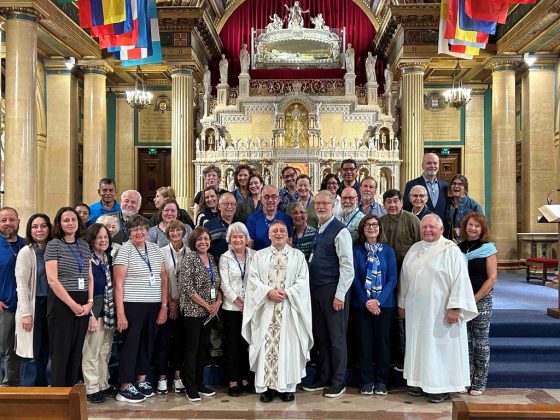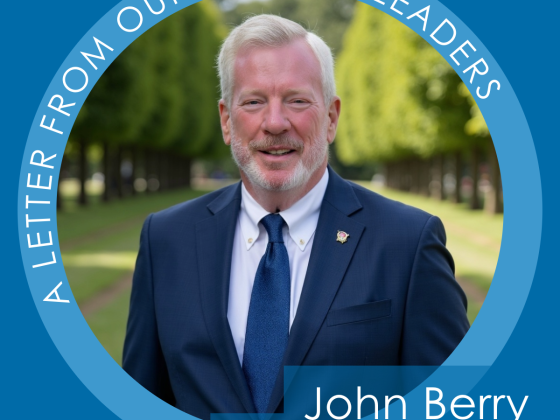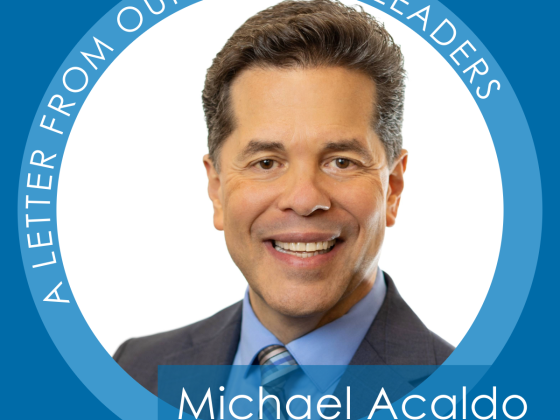 Mentoring
Mentoring
When I think of mentoring, several people come to mind depending on the stage of life I am reflecting on. Did I recognize at the time their impact on my life? Not often. Did I ever see myself moving into the role of mentor? No, and “What would I have to offer?” was typically the response I had. Little did I know the plans God had for me. Do you find yourself thinking something similar when you see the word mentor or when you are asked to take on a leadership role in SVdP?
To begin, I ask you to reflect on shared experiences.
Growing up, did you willingly enter into acts of service? Like me, it may have depended on the type of service. In my youth, I somewhat willingly took on tasks like making meals and canning vegetables. These tasks, much like mentorship, were significant and integral to the functioning of our household. On the contrary, I strategically stacked dishes on the counter with no intent to wash them, understanding the importance of my duty but purposely prolonging the process of actually washing the dishes. Whether mentorship to you is more like reluctantly washing dishes to me, I hope you can relate and understand the significance of your role in it.
I continue to ask you to reflect on shared experiences. How do your words line up with your actions and how does that affect your role as a mentor? I tend to hurry and quickly want results, yet I tell my children to take a peaceful approach to life. How have I tried to mitigate this somewhat reckless approach in my actions vs my words that seem to have the opposite meaning? My approach — intentionally reflecting on scripture before the rest of the household comes alive. I love mornings and the joy that comes with a new day, like unlimited potential, anticipation for what God has planned for me, and the peace of God-centered direction that comes from this routine. Intentionality is vital and that relief of busyness comes in service to others and the providential relationships I encounter daily. How well you know your talents or needed areas of improvement may determine your ability to provide mentorship.
We look to Youth, Young Adults and Emerging Leaders (YYAEL) to embrace this humble servant leadership vocation we live as Vincentians, but how to make that a reality is the burning question. We all have a place for this need, even if youth are already active in your local SVdP. We all want authentic and humble leaders to effectively guide our efforts locally and must work to achieve that desired outcome. Sound familiar?
This is where the last part of YYAEL provides a workable solution — the Emerging Leaders Team (ELT). Vincentian experiences and opportunities in leadership at a national level. ELT allows for growth in spirituality and friendship through service designed for our YYA members. I think a few things will help us connect YYA with our existing, more familiar Conference Life. Ultimately, we want to kindle the Vincentian flame rooted in Catholic ethos and the love of putting others first and ourselves last, or what I consider a lifelong Vincentian mentality.
With this in mind, here are three things to consider:
- The first consideration in aiding YYA (Youth and Young Adults) is to assess yourself and be honest with what you discover. Be willing to explore the tough topics and uncomfortable parts of life. If you can openly share your areas of improvement, YYA will see your authentic approach and guidance as something worth considering. I learned quickly to be who I am, and God will handle the rest. I am not in control, so why try to hide all my frailties? YYA need an honest approach to being a Vincentian, which can be achieved through authentic mentorship.
- Second, surround yourself with “good” people. Who are your people, your circle, or those closest to you regularly — daily, weekly, monthly? When I step back and see through a providential lens, I can see how people may fit into my life. I know the relationship with this person is a means of growing closer to who God has called me to be through service to others. I process the challenges and find ways to continue or mend the relationship. At times, I need as much guidance as I feel called to provide under the label mentor. Again, receiving the ebb and flow of the relationship with this person directly seen as an angel from God, I can See the face of Christ and Be the face of Christ through mentorship.
- Third, schedule a time to connect. Again, ask yourself a series of questions to gauge your commitment. What amount of time do you want to invest in a potential relationship? Are you willing to allow for flexibility in scheduling? Will you tolerate or address the possible frustration of last-minute cancellations, delayed responses, or meetings on the fly? When we start any relationship, time is needed to establish a routine that allows for flexibility and honesty. This approach can make me uncomfortable, but the reward outweighs the uneasiness if I let God lead.
With YYA, the same approach can lead to a lasting relationship. It may be a longer or shorter time of discernment. What happens in that space of time? Hopefully, mentorship ignites, and a desire to walk with this person is kindling. You allow for the ups and downs of interacting, assessing the demands of life, and ultimately working through these distractions that impede our relationship with God. I find myself sharing the dos and don’ts of life with my children in hopes of them avoiding some of the same pitfalls of selfishness, loneliness, and an overall lack of faith I experience when I am not in alignment with God’s will.
That is our directive for being a member of the Society — growing in holiness. What better way to do it than walking with our YYA as they embark on the changes in these life stages. I am guessing most of us have a few pointers worth sharing. The wisdom of our fellow Vincentians is not tied to age or other demographics. It is tied to our encounters. Conversations that involve both parties listening and hearing one another that make a lasting impact. I learn many things when I take my motives out of the equation, in turn providing a service to others and tending to the spiritual aspects of that relationship. Intentionality, self-awareness, and honesty surface as the means to friendship through mentorship.
These are not hard and fast things to follow when considering a mentorship role with someone. Instead, I see these ideas as a way to start the process and allow God to develop that exact path as you encounter one another as Vincentians. Like our friends in need, when I focus on the encounter offered with mentorship vs. the material help, desired outcome, or number “helped,” I find myself enjoying and adapting to the journey instead of wanting to finish the ride.
May you, too, see value in mentorship with those you have been called to serve in this way. Listen, hear, reflect, and stay the course. Are we not already mentoring someone in one way or another? We are Vincentians, and it seems to be a key to our growing in holiness. I know I have much to learn and continue to receive the fruits of being an unlabeled mentee to some pretty great Vincentians who might not identify as mentors, but you are to me. So thank you, S, C, M, J, K, D, A, R, Z, C…and now you have “The Rest of the Story. Good day!”




Hello Linda,
a good letter the word that caught my attention was . authentic (real ) I believe most svdp people are real and try there best and honest . The Youth society are so important to our society . look forward to talking to you . Hope Zoie is well and playing volleyball and I know she is faithfully serving others . And being a mentor is valued. by our society , or it should be . thank you Barbara Tenn